12 Jun 2024
Generative AI could make second language learning unnecessary, some cultural commentators have suggested. But global scholars at Xi’an Jiaotong-Liverpool University’s language teaching and learning conference disagree.
“I believe we should not stop learning foreign languages. While AI can do wonderful things with languages, it lacks the emotional and cultural nuances that humans bring,” said Professor Douglas Bell of the University of Nottingham Ningbo China. Professor Bell gave a plenary speech at XJTLU School of Languages’ conference held from 31 May to 2 June.
More than 270 language scholars and educators from 55 institutions globally convened in Suzhou to discuss how emerging technologies like generative AI may impact teaching and learning languages.
Time to transform
According to Professor Bell, language educators should embrace advancing technology as an opportunity.
“We need to acknowledge that there will be additional effects we have not yet considered, with unanticipated consequences,” he said. “However, we must adapt to these changes and embrace them.
“I believe we need to fundamentally rethink many aspects of teaching and learning in higher education. This is a significant opportunity for transformation.”
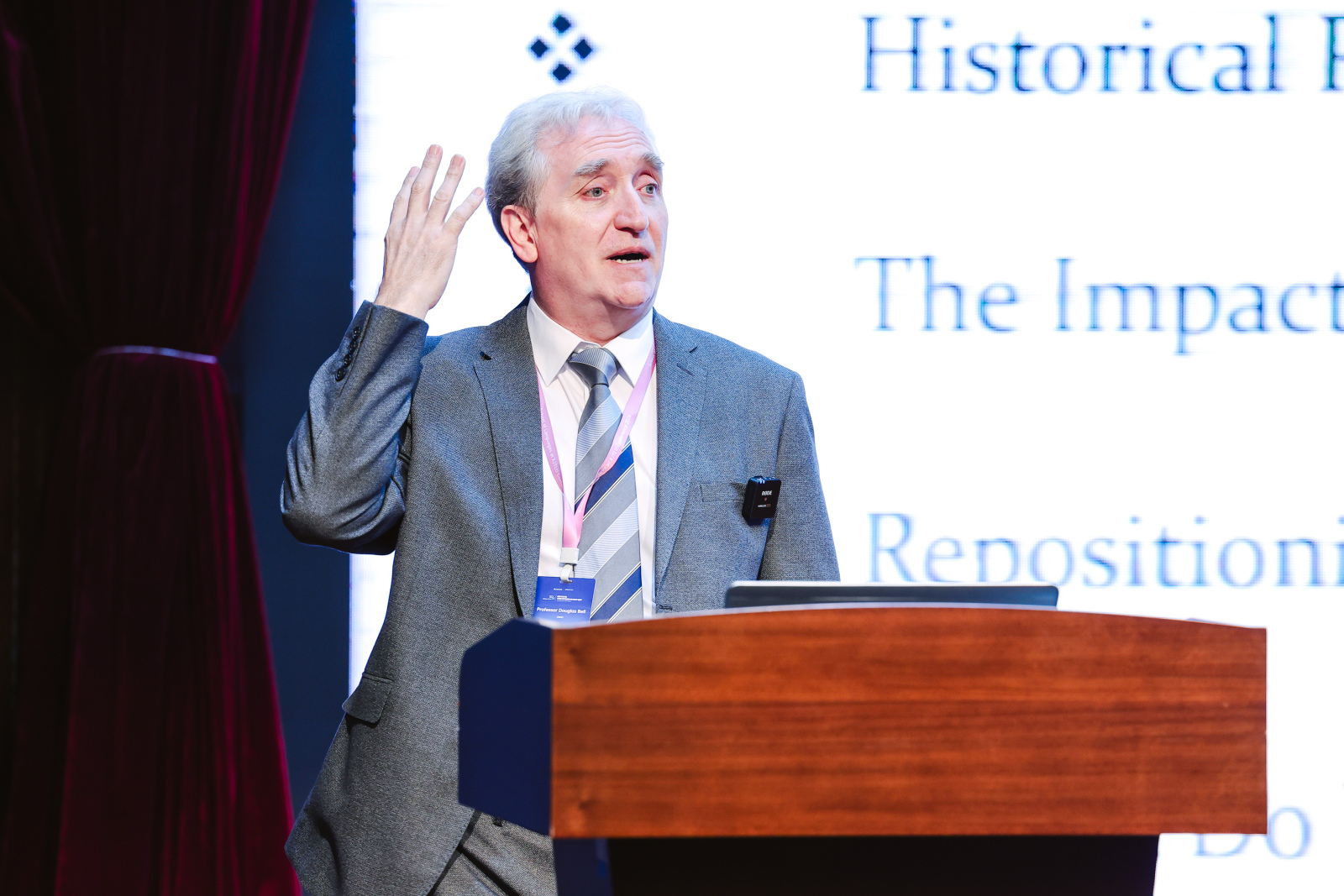 Professor Douglas Bell. Credit: XJTLU School of Languages
Professor Douglas Bell. Credit: XJTLU School of Languages
AI: Opportunities and challenges
Speakers at the conference highlighted AI’s integration into personalised learning, automated assessments, speech recognition, and professional development for teachers.
In a panel discussion on AI and language assessment, Oliver Jarvest, Ling (Angela) Xia, Christopher Redmond, Duncan James Roulstone, and Helen Beech from XJTLU’s School of Languages explored how educators can address the challenges and opportunities presented by AI.
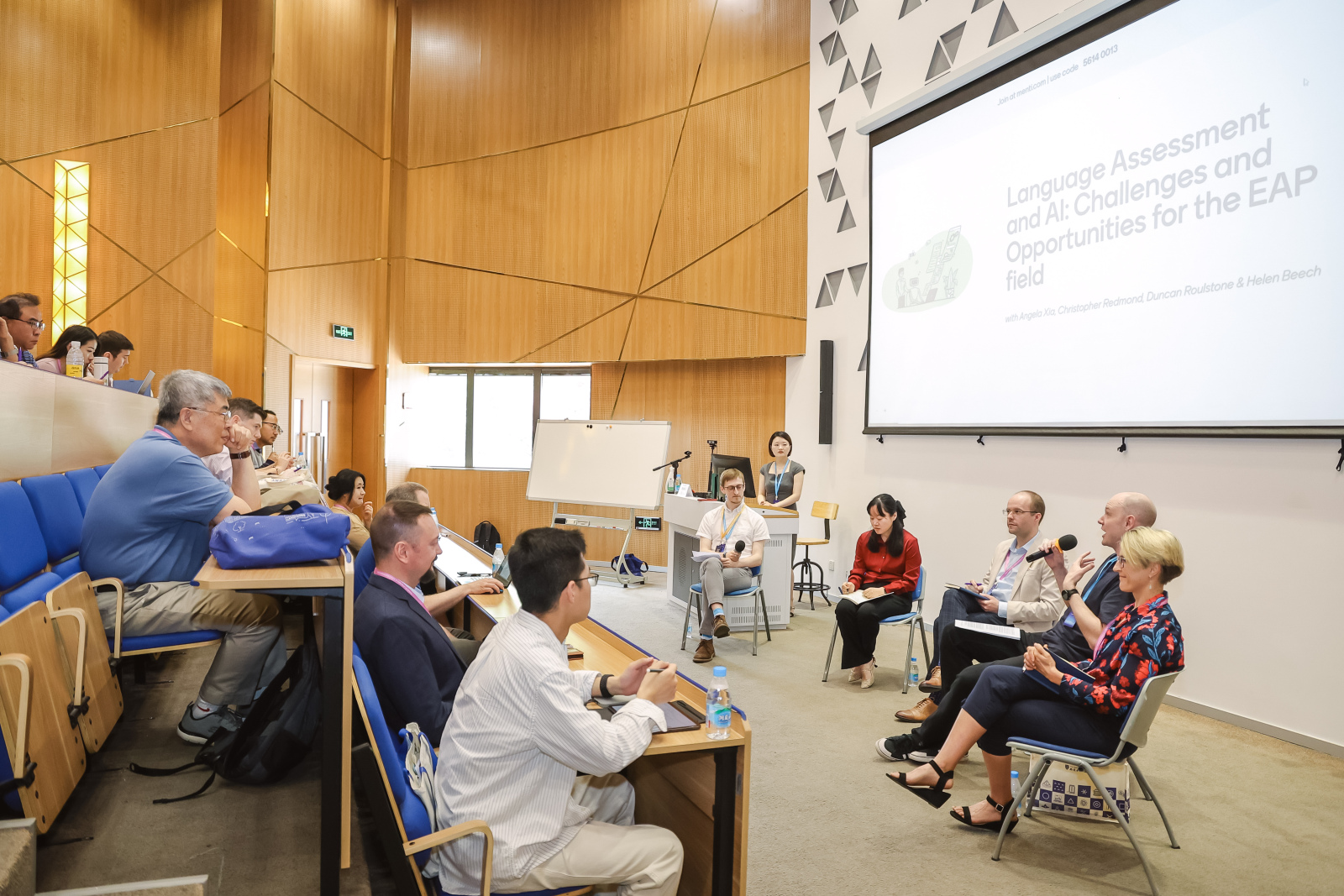
A panel discusses language assessment and AI. Credit: XJTLU School of Languages
Xia, Associate Dean for Learning and Teaching at the School of Languages, highlighted the challenges AI poses to English for Academic Purposes (EAP) assessment.
“As generative AI tools evolve, we’ve identified that our assessments overly rely on essay writing, making it easier for students to use AI rather than genuinely improving their language skills,” Xia explained.
To address these challenges, the School of Languages will implement a new assessment scheme in various modules during the 2024-25 academic year, Xia said.
“Take the Year Two modules for example, 20% of the assessment will be module-specific in-class assessments, ” she said. “Additionally, 50% of the assessment will be project-based, where we create context-specific tasks that integrate listening, speaking, reading, and writing skills.”
“We will also allocate 30% for traditional pen-and-paper exams to assess students’ language proficiency without the assistance of any AI tools. This approach will hopefully provide a comprehensive evaluation of students’ skills,” she said.
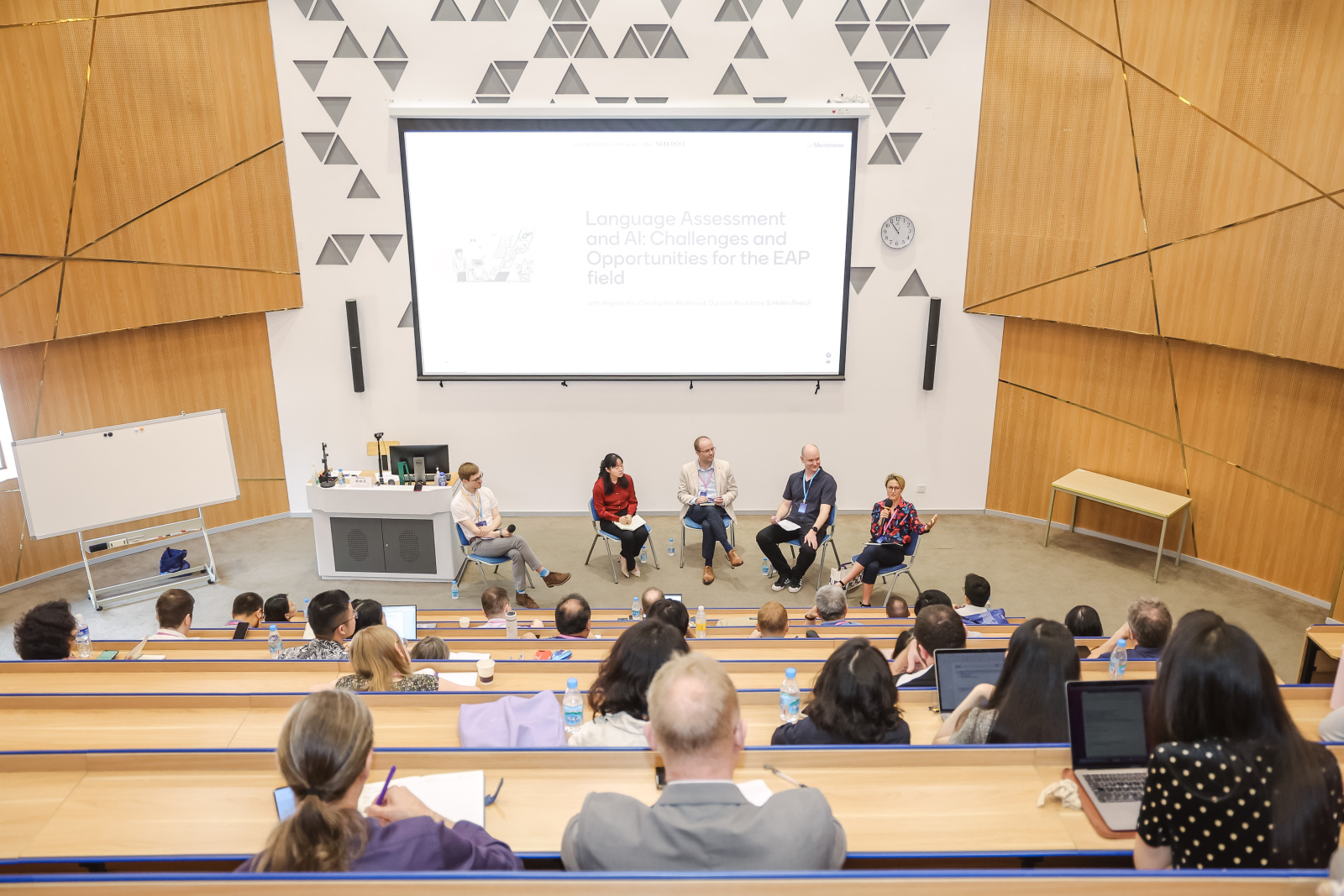
From left: Oliver Jarvest, Ling (Angela) Xia, Christopher Redmond, Duncan James Roulstone, and Helen Beech. Credit: XJTLU School of Languages
Beech, Dean of the School of Languages, said AI literacy training for both teachers and students is critical.
“We need to teach students how to use these tools effectively. Lifelong learning requires us to continually update our skills, including AI literacy. Many teachers are confident in their skills but less so in teaching students to use AI. Institutions must provide more hands-on training to bridge this gap,” Beech said.
New directions
Speakers also presented on various innovative trends shaping language education, including virtual reality, blended learning, and gamification.
Professor Xiumin Zhao from Tohoku University, Japan, introduced a blended learning model for elementary Chinese instruction at Japanese universities. “We propose a ‘two-stage learning process’ combining online self-study with offline lectures,” Professor Zhao said.
“Students use video materials and an AI speech recognition app for online learning, while offline classes focus on applying language skills through communication activities,” she explained.
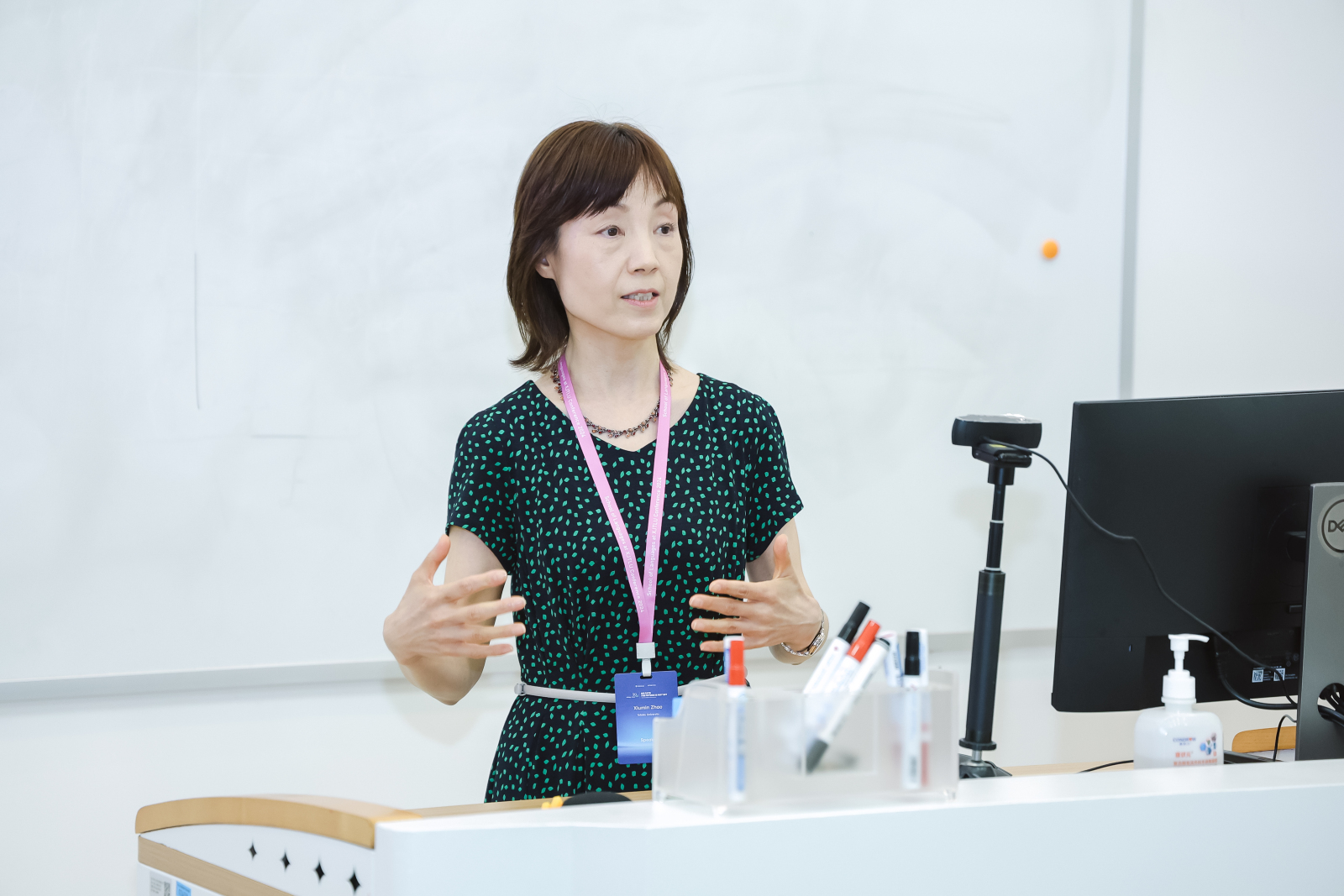
Professor Xiumin Zhao. Credit: XJTLU School of Languages
“We developed digital teaching materials and a learning management system (LMS), launching a pilot in 2023. The effectiveness of this model has been confirmed through LMS data, exam results, and student feedback,” she added.
An educational technology showcase enabled lecturers from XJTLU’s School of Languages to share leading-edge teaching tools and methods with language educators from around the world. During the showcase, the lecturers discussed the effective use of these technologies.
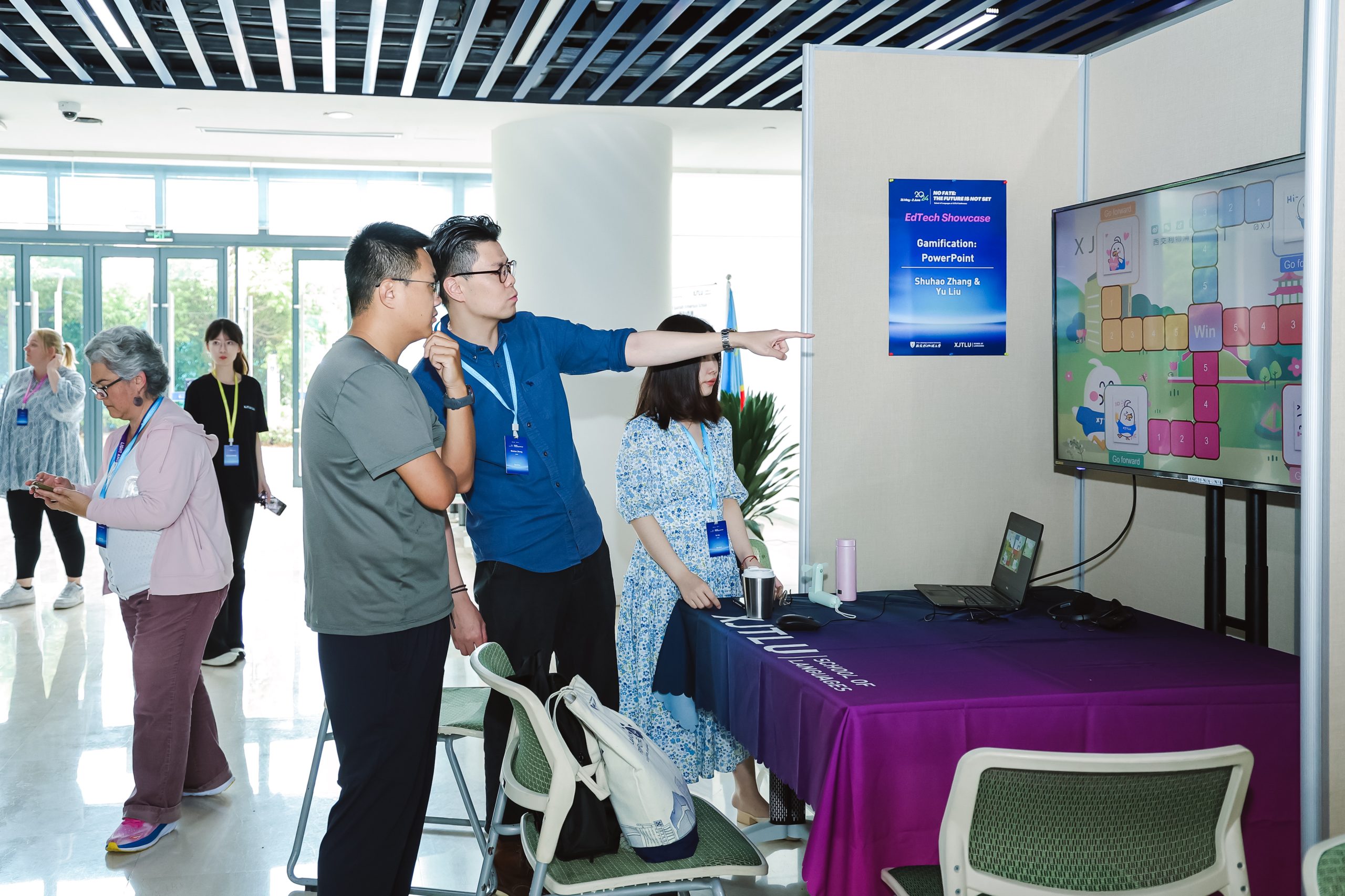
Gamification booth at the educational technology showcase. Credit: XJTLU School of Languages
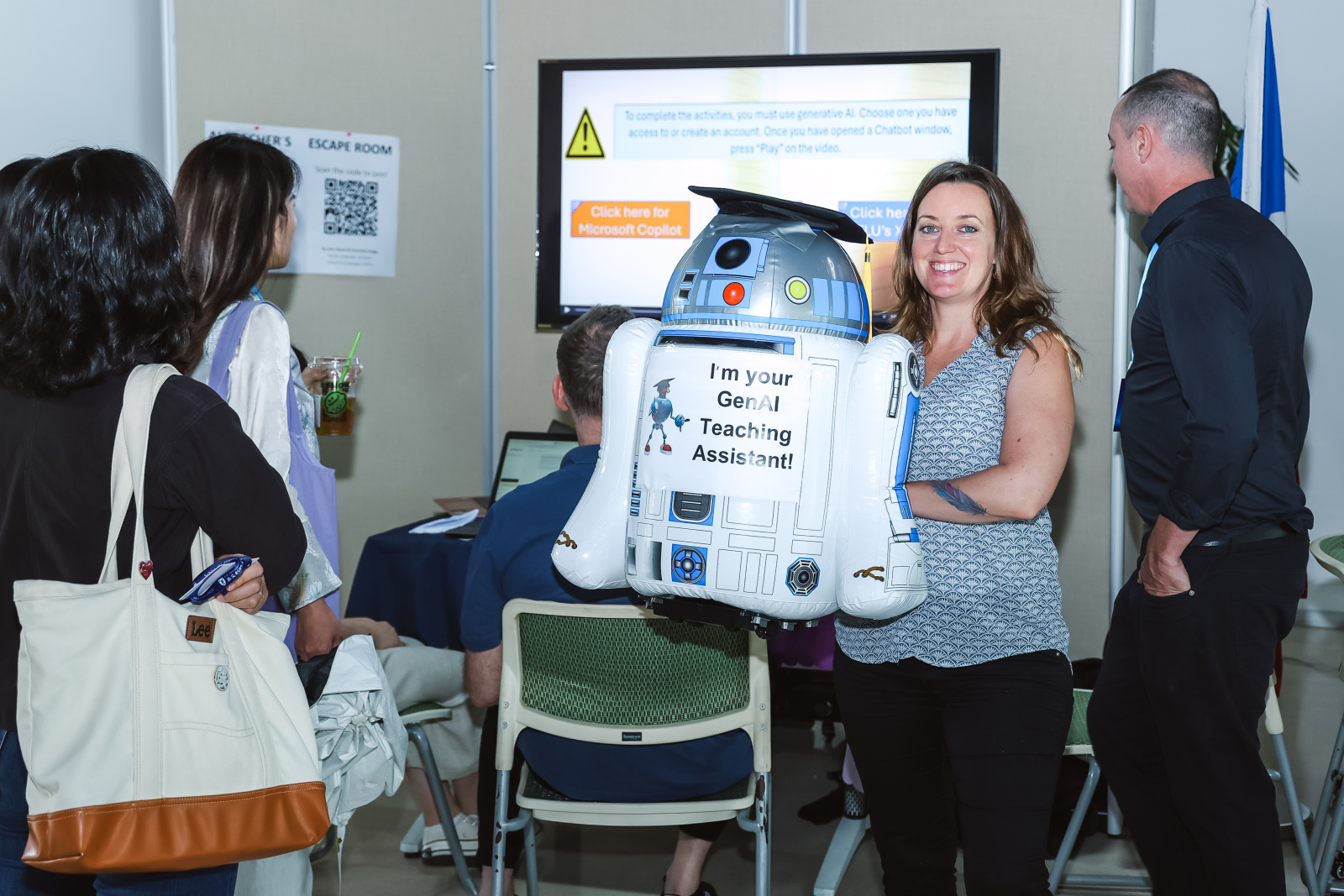
Generative AI booth at the educational technology showcase. Credit: XJTLU School of Languages
The virtual reality language learning booth attracted many participants. Rui Xu, Language Lecturer at XJTLU’s School of Languages, introduced the Virtual Reality Language Learning Lab, a community dedicated to enhancing language learning through XR technologies.
“It provides immersive and interactive virtual linguistic and cross-cultural experiences, supporting learners of English, Chinese, Japanese, and Spanish,” Xu said.
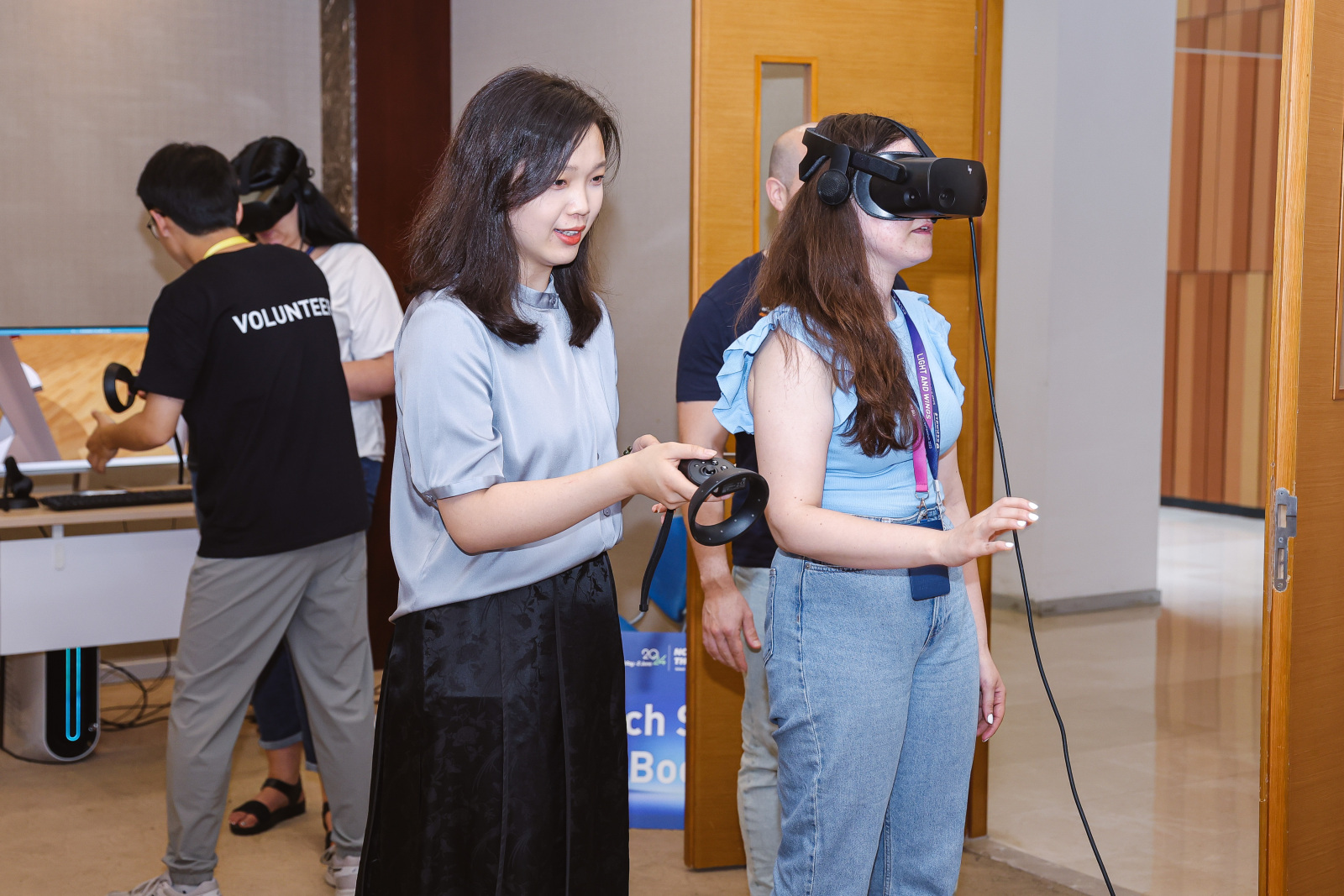
Virtual reality language learning booth. Credit: XJTLU School of Languages
Dr Trevor Mahy, Associate Dean for Research and Scholarship at the School of Languages said the event united leading scholars and emerging educators to explore AI’s transformation of teaching and learning.
“This conference underscores the importance of the human connection and provides a platform to share diverse perspectives and ideas,” he said.
By Xinyi Liu
Edited by Tamara Kaup and Xinmin Han
12 Jun 2024








